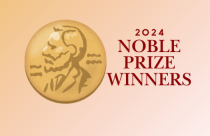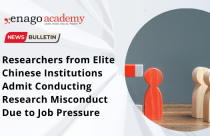Clarivate Releases the 2023 List of Highly Cited Researchers; Excludes Over 1000 for Alleged “Fraud”

Clarivate Plc, a global leader in providing trusted intelligence, released its 2023 list of 7,125 Highly Cited Researchers™, recognizing 6,849 influential researchers globally across various fields. The numerical inappropriateness arises from researchers receiving recognition in multiple Essential Science Indicators (ESI) fields. Fields such as Clinical Medicine, Biology and Biochemistry, and Chemistry boast the highest numbers, contributing to a grand total of 7,125 distinguished researchers; with 26 researchers appearing in more than one fields. The list, compiled by Clarivate’s Institute for Scientific Information (ISI), aims to recognize researchers demonstrating substantial and widespread impact in their respective fields.
 Rigorous Selection Process to Ensure Research Integrity
Rigorous Selection Process to Ensure Research Integrity
The selection criteria involve a meticulous examination of data from the Web of Science™ citation index, coupled with the expertise of bibliometric professionals and data scientists at the ISI at Clarivate™. This year’s evaluation process underwent evolution in response to emerging threats to research integrity. Analysts at ISI initiated the review by examining Highly Cited Papers™ from the last decade, creating a list of preliminary candidates. To ensure the utmost rigor, qualitative filters were then applied to detect anomalies such as extreme hyper-authorship, excessive self-citation, or unusual group citation patterns, resulting in the exclusion of over 1,000 researchers from the final list.
Global Contribution and Notable Entrances Driving Scientific Excellence
While the list includes the recognition of 6,849 individuals from institutions in 67 countries/regions, notably, 83.8% of these researchers are based in just 10 countries, with 72.7% in the top five, underscoring a concentration of top talent.
The United States leads the world share with 37.5% of the Highly Cited Researchers, although it has experienced a gradual decline from 43.3% in 2018. Mainland China secured the second position with 17.9%, demonstrating a noteworthy increase from 7.9% in 2018.
The UK, Germany, Australia, Canada, the Netherlands, and France maintained their respective ranks with minimal fluctuations, followed by the latest newcomers Hong Kong, and Italy to complete the top 10. This showcases the international diversity of highly influential researchers and a shift that emphasizes on the evolving dynamics of global scientific contributions. This trend reflects a globalized research landscape with contributions from diverse regions.
The Chinese Academy of Sciences tops the list among institutions, with 270 Highly Cited Researcher recognitions, reflecting a dynamic global shift in scientific and scholarly contributions.
This is followed by the Harvard University, with 237 Highly Cited Researchers. The list also includes other prestigious institutions like Stanford University, the U.S. National Institutes of Health, and the Max Planck Society.
Among the top 50 institutions, Hong Kong and two French universities, Université Paris Cité and Université Paris Saclay, have made notable entrances.
Toward a Promising Future of Upholding Research Integrity
In the announcement by Clarivate, the Head of Research Analysis, David Pendlebury, remarked the importance of adapting to technological advances and changes in the publishing landscape to maintain high-quality data. He emphasized the commitment to maintaining stringent standards and transparent selection criteria, essential in navigating the complexities of the scholarly record.
The release of the Highly Cited Researchers list for 2023 signals not only the celebration of academic excellence but also the acknowledgment of the evolving landscape of scholarly contributions on a global scale. But mostly importantly, the commitment to maintaining the integrity of research amidst challenges is evident.









